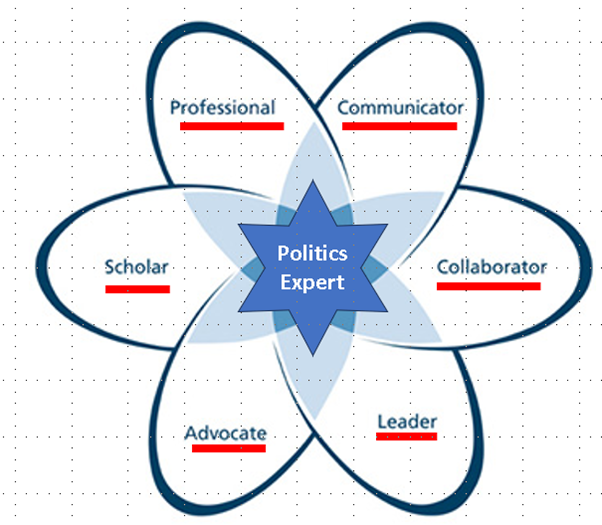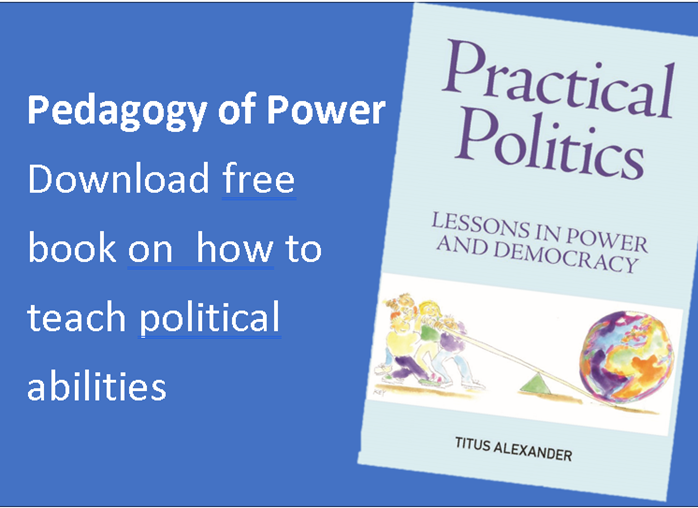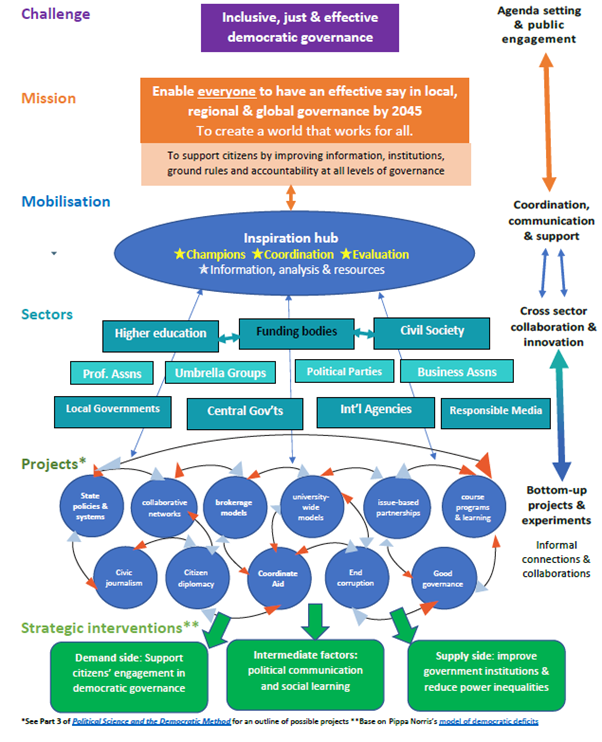Most political science is like anatomy, analysing the body politic without healing it. In the first instalment of a series on ‘Rescuing Democracy’, Titus Alexander argues that we can learn from health sciences and create a manifesto, like that of The Lancet, to prioritise improving lives and launch a global mission to strengthen democracy
Democracy is in crisis
According to The Economist’s Democracy Index, just 6.4% of the world’s people live in a full democracy. Global dissatisfaction with democracy runs high. IDEA International’s 2021 Global Democracy Report reveals that more than a third of humanity lives under authoritarian rule. Illiberal rulers could strengthen surveillance and control to end our brief experiments with representative democracy.
Political scientists have written a lot about the decline of democracy and rise of authoritarianism. But, with honourable exceptions, they are often absent from initiatives to strengthen it, such as President Biden’s Summits for Democracy and multi-stakeholder Democracy Cohorts. If we value equal citizenship, freedom and democracy, we need more than diagnoses of what’s wrong.
Lessons from health sciences
Compared with health, democratic systems have progressed little over the last seventy years. Health scientists use both rigorous research and influencing skills to cure disease and promote public health at all levels. The Lancet, a leading medical journal, even has a manifesto linking research with advocacy:
Improving lives is the only end goal
Too much research is done for research’s sake. We believe that improving lives is the only end goal and that research is only relevant when it has an impact on human lives.
Increasing the social impact of science
We recognise that a great research paper is not enough and that it requires development, mobilisation, and exposure. So we promise to set agendas, create context, inform leaders, start debates, and advocate for the idea that research can and will make a difference.
The British Medical Association (BMA), represents doctors and medical students. Similarly, it aims to be a ‘leading voice advocating for outstanding healthcare and a healthy population’.
The Canadian medical profession has developed the CanMEDS framework which recognises advocacy as a key competence for health experts, alongside communication, collaboration, leadership, professionalism and scholarship.

In contrast, the vision of the world’s largest political science association, APSA, is:
promoting scholarly understanding of political ideas, norms, behaviors, and institutions to inform public choices about government, governance, and public policy mission statement of the american political science association (APSA)
And the mission of Europe’s largest political science association, ECPR, is to ‘advance political science’, ‘help the world understand and benefit from the critical importance of political science’ and:
help interpret the world’s complex and changing political landscape for the benefit of all
from european consortium for political research (ECPR) mission statement
If medical sciences promoted only scholarly understanding and their own importance, our life expectancy would be decades shorter.
Knowledge is never enough
Extensive research evidence about the harmfulness of fossil fuels, tobacco and other substances was not enough to convince governments to protect lives. Intense lobbying by those who benefit from the way things are, as exposed in the documentary Merchants of Doubt, means that governments resist better, fairer and safer ways of doing things, while enacting reckless deregulation.
Universities themselves are part of the problem. They educate the professionals who run society and the defenders of toxic policies. University-educated professionals dominate political debate. They enjoy a higher share of national income, so that working-class and low-income voters feel excluded. This creates political divisions in democracies – and opportunities for authoritarian populists.
The erosion of democracy also threatens academic freedom in the US and elsewhere. It is in universities’ interest to ensure that democracy works for all. Political scientists could lead the recovery with a manifesto that makes improving lives its only end goal. They can provide a better understanding of democratic systems and, above all, help citizens improve them.
How can political science renew democracy?
The health of democracy depends on active participation by citizens. It also depends on the integrity and effectiveness of elections, government institutions, journalism, social media, education, markets and other agencies.
Political scientists can assist the recovery of democracy by working with citizens on three tasks. They can:
1. Promote skills for democracy through education, public service media, and online
Most academics are wary about teaching practical politics. They quite rightly don’t want to politicise their subjects. Many are afraid of being accused of indoctrination. Above all, most don’t know how to teach it. These are understandable concerns. Projects like Professor Watchlist, partisan press, aggressive social media, authoritarian politicians, dogmatic ideologues and over-zealous students make honest, open debate difficult.
You can’t learn how to play football from a book. And you can’t learn about politics without getting involved in it
Education for democracy has to be pluralistic, nonpartisan, and challenge learners to see all sides of an issue. But just as you can’t learn football from books, people need to take part. There are many examples from which to learn, such as lobbying for citizens; Social Action Course Initiative; the Educational Network for Active Civic Transformation (ENACT), and more.
2. Promote democratic innovation
Such innovations may include cooperatives, citizens’ assemblies and methods documented by Participedia, NESTA and the OECD. Scholars are making valuable contributions in this area, but we need more experiments and working models for democracy in the economy, finance, public services and global governance.
3. Turn universities into ‘intelligence agencies for democracy’
This will give citizens evidence, and the support necessary, to have an effective voice. Many researchers produce in-depth analyses of social problems, and even propose solutions, but rarely present them in ways citizens can use. Research priorities are often set by the most powerful, not the poorest and least powerful with the most urgent problems.
Helping citizens to solve these urgent problems would make the world better for everyone. Guides such as How Universities Can Make A Difference and my book on teaching practical politics outline the arguments necessary to persuade Faculty boards to make support for democracy a core mission of their institution.
We need a mission for democracy
Throughout history, courageous scholars and institutions have expanded people’s freedom to learn and use knowledge to benefit humanity. What we need now is a Mission to Renew Democracy, like the 1960s moonshot and global coalitions against polio, AIDS-HIV and Covid.
The question remains: can political scientists help to strengthen democracy?
This article was originally published at The Loop and is republished here under a Creative Commons license.


